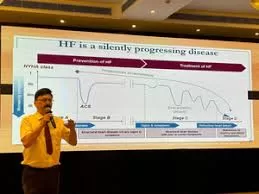Recent research published in the Journal of Clinical Oncology suggests that individuals testing positive for Helicobacter pylori (H. pylori) may face a heightened risk of colorectal cancer (CRC) incidence and mortality. However, a two-week course of antibiotics to eradicate the bacterial infection could significantly lower the risk of developing and succumbing to CRC.
H. pylori is a well-known culprit behind peptic ulcers and stomach cancer and has been classified as a group I carcinogen by the World Health Organization’s International Agency for Research on Cancer. While previous studies have established a connection between H. pylori and gastric cancer, evidence regarding its link to CRC has been inconsistent.
To delve into the potential association between H. pylori infection and CRC, researchers analyzed data from a nationwide cohort of 812,736 veterans who underwent H. pylori testing at Veterans Health Administration facilities. Among the participants, 25.2% tested positive for H. pylori, with 34% of them receiving treatment.
Over the course of a 15-year follow-up period, individuals with H. pylori infection exhibited an 18% higher risk of CRC incidence and a 12% higher risk of CRC mortality compared to those without the infection. Notably, untreated patients faced even greater risks, with a 23% higher risk of CRC incidence and a staggering 40% higher risk of CRC mortality.
The study revealed that receiving treatment for H. pylori infection was associated with a lower risk of developing and dying from CRC, with an absolute risk reduction ranging from 0.23% to 0.35%. This reduction is comparable to the risk reduction observed with invasive screening colonoscopies, underlining the potential significance of antibiotic treatment in CRC prevention.
According to the authors of an accompanying editorial, the findings carry significant clinical implications. While the precise mechanistic link between H. pylori and colorectal cancer remains unclear, the ability to potentially reduce both gastric and colorectal cancers by eliminating H. pylori underscores the importance of considering such interventions in the clinical management of individuals at high risk for gastrointestinal cancers.
Led by Shailja C. Shah, MD, of the University of California San Diego, the study was funded by the Veterans Health Administration, the National Cancer Institute, and other organizations. Notably, the research team reported various ties to pharmaceutical companies, including AstraZeneca and Novartis.
Despite the promising findings, the study’s limitations, such as its focus on US veterans and potential differences in CRC risk factors among treated and untreated patients, warrant further investigation to validate the generalizability of the results to other populations.
In summary, the study underscores the potential role of antibiotics in reducing CRC risk among individuals with H. pylori infection, offering hope for more effective strategies in CRC prevention and management.












